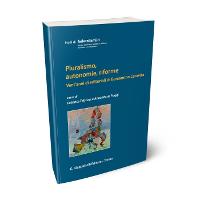
Log in or Create account
FOCUS - Osservatorio di Diritto sanitario
Active international healthcare mobility and urban accessibility: the essential role of Italian cities and urban planning in the development of foreign healthcare tourism
Abstract [En]: The balance between Italians who go to be treated abroad and foreigners who come to be treated in Italy is still negative for our country; there are many difficulties (of an organizational, regulatory and management type) that push health tourists to choose other countries instead of ours. However, Italy should strive to try to resolve the aforementioned difficulties in order to become a coveted country; in this context, a fundamental role can be played by Italian cities, effective protagonists of health migration. It seems that among the aspects to be addressed is that of urban accessibility, given that many Italian cities are not yet able to be fully inclusive. The problem, as highlighted in the text, obviously does not concern medical tourists alone, but also, and more generally, disabled people residing in our country, who are often unable to participate in the prosperity deriving from urban revitalization. An action that is aimed at ensuring urban accessibility with the aim of making Italy a country sought after by health tourists, therefore, is an action that simultaneously benefits all those who live in it.
Abstract [It]: Il saldo tra gli italiani che vanno a farsi curare all’estero e gli stranieri che vengono a farsi curare in Italia è ancora negativo per il nostro Paese; molte sono le difficoltà (di tipo organizzativo, regolatorio e gestionale) che spingono i turisti sanitari a scegliere altri paesi al posto del nostro. Tuttavia, l’Italia dovrebbe impegnarsi per cercare di risolvere le suddette difficoltà al fine di diventare un paese ambito; in quest’ottica, un ruolo fondamentale può essere giocato dalle città italiane, protagoniste effettive delle migrazioni sanitarie. Si ritiene che tra gli aspetti da attenzionare vi sia quello dell’accessibilità urbana, posto che molti comuni italiani non riescono ancora ad essere pienamente inclusivi. Il problema, come evidenziato nel paper, non riguarda, evidentemente, i soli turisti sanitari, ma anche, più in generale, le persone disabili che risiedono nel nostro Paese, le quali non riescono spesso a partecipare alla prosperità derivante dalla rivitalizzazione urbana. Un’azione che sia diretta ad assicurare l’accessibilità urbana col fine di rendere l’Italia un paese ambito da turisti sanitari, dunque, è un’azione che si pone contestualmente a beneficio anche di tutti coloro i quali vivano in essa.
Sommario: 1. Active international healthcare mobility in Italy. 2. The role of cities in the development of active cross-border mobility: the importance of ensuring urban accessibility. 3. Urban accessibility in Italian cities: a not entirely positive balance. 4. Beyond health tourism: looking at urban accessibility as an investment and not as an expense. 5. Accessibility to the collective transport system and buildings of cultural interest. 6. Conclusions: five minimum aspects to consider when working on urban accessibility and the relationship between urban accessibility and smart cities.
NUMERO 1 - ALTRI ARTICOLI
-
ITALIA - DOTTRINA
Da 'Solange' a 'PSPP': alla ricerca delle radici di un 'dialogo tra Corti' naufragato in un incomprensibile soliloquio
Giurisprudenza - Italia - TAR - Giustizia amministrativaGiurisprudenza creativa e digitalizzazione
-
ITALIA - DOTTRINA
La soppressione del ricorso superaccelerato e l'ingiustificato sacrificio della certezza del diritto
ITALIA - DOTTRINALa saga Schrems e la tutela dei diritti fondamentali
-
ITALIA - DOTTRINA
Corte Suprema e diritto all’aborto



 Registrati
Registrati Login
Login
 Riforme istituzionali e forma di governo
Riforme istituzionali e forma di governo Lavoro Persona Tecnologia
Lavoro Persona Tecnologia Osservatorio di Diritto sanitario
Osservatorio di Diritto sanitario Osservatorio Trasparenza
Osservatorio Trasparenza Africa
Africa Human Rights
Human Rights America Latina
America Latina Territorio e Istituzioni
Territorio e Istituzioni Storico focus
Storico focus Scarica il Documento integrale
Scarica il Documento integrale
 STUDI FEDERALISMI
STUDI FEDERALISMI




